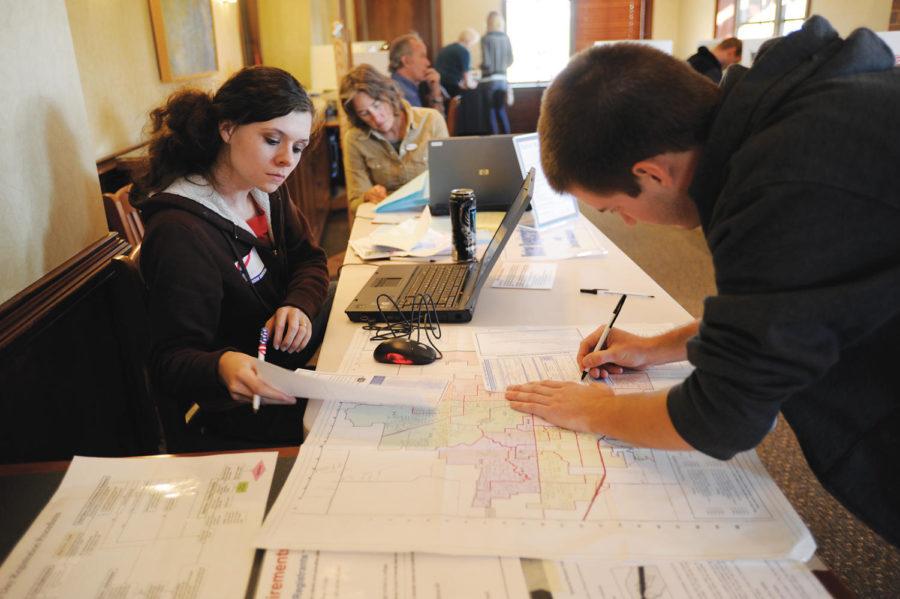Election calls for youth involvement
Photo: Yue Wu/Iowa State Daily
Alexander Unlrich, right, sophomore in criminal justice and sociology, votes at Hawthorn Tuesday. Unlrich said he votes because it’s a civic duty and privilege as an American.
November 3, 2010
The polls are closed and Iowa’s future is now in the hands of the newly elected officials. Citizens from all counties in Iowa made their way to the polling centers Tuesday to cast their votes and voice their opinions about Iowa’s political leaders.
“Students are choosing to vote now more than any other time because of the Internet, and celebrities show how important voting really is,” said Chris Celania, sophomore in materials engineering. “We see the importance everyday, making it clear we need to vote more.”
Thanks to sources like Facebook and Twitter, politicians are better able to reach young voters in ways that they use the most. Many politicians, if not all, are using these sources to help campaign and reach out to youth in any way they can.
“The youth’s votes are important because being the youngest, we have the most at stake in the future,” said Chet Anderson, sophomore in aerospace engineering.
Many students who made it to Iowa State’s polling stations had different motives for voting. Whether supporting a single issue or voting a party-specific ballot, students expressed their views through their votes.
“I voted because I want to choose a politician I trust,” said Jeff Adkins, freshman in aerospace engineering.
“I’m voting because I go to college, and the price of tuition is an issue politicians can change. I also care about the environment,” said Dena Siegel, freshman in pre-business.
Although there were many students who voted yesterday, there was still a significant amount who did not exercise their right to vote or, in some cases, were not able to.
Edna Lopez, graduate student in curriculum and instruction, is an international student. Students like Lopez, who are from other countries, are not allowed to vote in the United States.
“I’d love to vote, but I’m an international student, so I can’t,” Lopez said.
Many voters used political ads as a basis of their voting decisions.
“The first time I watch the ads, they are informative, but after about a week, they just get annoying,” said Dan Sepich, sophomore in pre-business. “Even if people don’t think they are paying attention to an ad, it is still there and they are more than likely to absorb some of the information.”
Some students, however, find the ads more derogatory than informative.
“Most political ads just try to convince you that someone else [in the election] is bad,” Anderson said. “They’ll only highlight the bad things of the other [candidates].”
Whether the impact be large or small, ISU students’ involvement in the election process is something many encourage, appreciate and look forward to in coming elections.

















